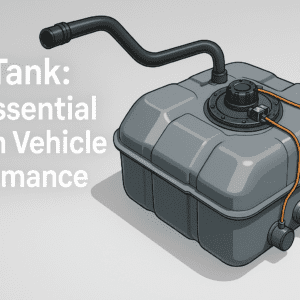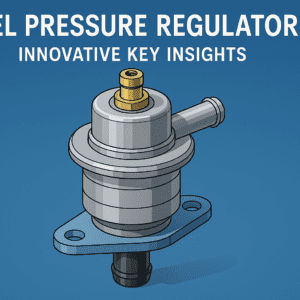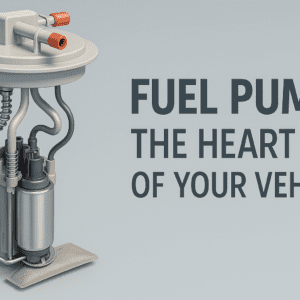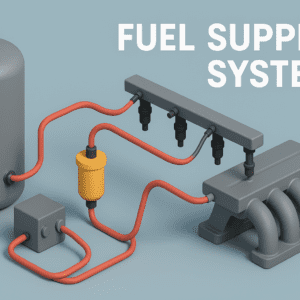
1. Understanding Fuel Filters
1.1. Definition of a fuel filter

A fuel filter is a crucial component in your vehicle’s fuel system. It’s like a bouncer at a club, but instead of keeping out rowdy party-goers, it keeps contaminants from entering your engine. These little guardians work tirelessly to ensure that only clean fuel reaches your engine, helping it run smoothly and efficiently.
1.2. Components of a fuel filter
Fuel filters might seem simple, but they’re actually quite clever in their design. They typically consist of a housing, which is like the filter’s outer shell, and a filtering element inside. This element is usually made of paper, synthetic material, or sometimes even wire mesh. It’s designed to catch tiny particles while allowing fuel to flow through.
1.3. How fuel filters work
The process is pretty straightforward, but it’s amazing how effective it is. As fuel flows from your gas tank to the engine, it passes through the filter. The filtering element traps dirt, rust, and other nasty bits that could harm your engine. It’s like a colander for your fuel, only much more sophisticated!
Read more about fuel supply system click on this link: Fuel Supply System
2. The Necessity of Fuel Filters

2.1. Protecting the engine from contaminants
Imagine if all the dirt and debris in your fuel made it to your engine. It would be like sand in your sandwich – not good! Fuel filters prevent this by catching these contaminants before they can cause damage. They’re the unsung heroes of your engine, working silently to keep everything running smoothly.
2.2. Improving fuel efficiency
Clean fuel burns more efficiently. When your engine gets only clean fuel, it doesn’t have to work as hard. This means you get more miles per gallon, which is great for both your wallet and the environment. It’s like the difference between running on a clean track versus one covered in mud – you’ll go farther with less effort!
2.3. Extending engine life
By keeping contaminants out, fuel filters help your engine components last longer. It’s like how eating healthy keeps our bodies in better shape for longer. A clean engine is a happy engine, and a happy engine is one that will stick around for many more miles.
Read more about lubrication system click on this link: Lubrication System
3. Functions of Fuel Filters

3.1. Removing particulate matter
This is the primary job of a fuel filter. It catches tiny particles of dirt, rust, and other debris that might be lurking in your fuel. These particles can be as small as a few microns – that’s smaller than a human hair! The filter catches these tiny troublemakers before they can cause big problems in your engine.
3.2. Separating water from fuel
Some fuel filters, especially in diesel engines, have the added task of separating water from fuel. Water in your fuel system can cause serious issues, like corrosion and microbial growth. These filters act like a water-fuel divorce lawyer, making sure the two stay separated.
3.3. Maintaining consistent fuel flow
A good fuel filter doesn’t just clean; it also ensures a steady flow of fuel to your engine. It’s like a traffic controller, making sure fuel moves smoothly without any unexpected jams or blockages. This consistent flow is crucial for your engine’s performance and efficiency.
4. Types of Fuel Filters

4.1. In-line fuel filters
These are the most common type of fuel filters. They’re installed in the fuel line between the fuel tank and the engine. Think of them as a checkpoint on the fuel’s journey to the engine. They’re usually easy to replace, which is a bonus for DIY enthusiasts.
4.2. Cartridge-type fuel filters
These filters consist of a replaceable cartridge inside a permanent housing. They’re becoming more popular because they’re more environmentally friendly – you only replace the cartridge, not the entire filter. It’s like having a reusable water bottle but for your car’s fuel system.
4.3. Spin-on fuel filters
These look a bit like oil filters and are designed to be easily replaced. You just unscrew the old one and screw on a new one. It’s almost as easy as changing a light bulb, making maintenance a breeze for many car owners.
Read more about engine click on this link: Engine
5. Fuel Filter Location in Vehicles
5.1. Common placement areas

Fuel filters are usually found along the fuel line, often near the fuel tank or the engine. In some cars, they’re under the hood, while in others, they might be underneath the vehicle. It’s like a game of hide and seek, but once you know where to look, it’s not too hard to find.
5.2. Variations in different vehicle models
Just like people, different car models have their quirks when it comes to fuel filter placement. Some manufacturers put them in easily accessible spots, while others… well, let’s just say they like to keep things interesting. It’s always a good idea to check your vehicle’s manual to know exactly where your fuel filter is hiding.
5.3. Accessibility for maintenance
The accessibility of your fuel filter can vary greatly depending on your vehicle. Some are as easy to reach as your glove compartment, while others might require a bit of acrobatics to get to. This can affect how easy (or challenging) it is to maintain or replace your fuel filter.
6. Advantages of Proper Fuel Filtration
6.1. Enhanced engine performance
Clean fuel leads to better engine performance. It’s like giving your car a clean, healthy diet. With proper filtration, your engine runs more smoothly, accelerates better, and generally feels more responsive. You might not notice it day-to-day, but over time, the difference can be significant.
6.2. Reduced emissions
When your engine burns clean fuel efficiently, it produces fewer harmful emissions. This is great news for the environment and can help your car pass emissions tests more easily. It’s a win-win situation – your car runs better and Mother Nature smiles.
6.3. Lower maintenance costs
By keeping contaminants out of your engine, a good fuel filter can help prevent expensive damage. It’s like how regular dental check-ups can prevent costly procedures down the line. Spending a little on maintaining your fuel filter can save you a lot in potential engine repairs.
7. Common Fuel Filter Problems

7.1. Clogging and reduced fuel flow
Over time, fuel filters can get clogged with all the contaminants they’ve trapped. This is actually a sign they’re doing their job, but it can lead to reduced fuel flow. It’s like a clogged drain – things just don’t flow as smoothly as they should.
7.2. Fuel system contamination
If a fuel filter fails or isn’t changed regularly, contaminants can make their way into the fuel system. This can lead to all sorts of problems, from poor performance to engine damage. It’s like letting the bad guys slip past security – nothing good comes from it.
7.3. Premature filter failure
Sometimes, fuel filters can fail before their expected lifespan. This could be due to extremely contaminated fuel or manufacturing defects. It’s rare, but it can happen, kind of like how sometimes a light bulb burns out way too soon.
Visit website click on this link: Autobiography Zone
8. Fuel Filter Maintenance and Replacement
8.1. Signs of a failing fuel filter
Watch out for signs like decreased engine performance, difficulty starting the engine, or a rough idle. These could be your car’s way of saying, “Hey, I think the fuel filter needs some attention!” It’s like when your body tells you it’s time for a check-up.
8.2. Recommended replacement intervals
Most manufacturers recommend changing your fuel filter every 20,000 to 40,000 miles, but this can vary. It’s always best to check your vehicle’s manual for the specific recommendation. Think of it as your car’s personal health plan.
8.3. DIY vs. professional replacement
Replacing a fuel filter can be a DIY job for some vehicles, especially if the filter is easily accessible. However, for more complicated setups or if you’re not comfortable working on your car, it’s best to leave it to the professionals. It’s like cutting your own hair – sometimes it’s better to visit a professional!
9. Conclusion
9.1. Recap of fuel filter importance
Fuel filters play a crucial role in keeping your engine running smoothly and efficiently. They’re the unsung heroes of your fuel system, quietly doing their job to protect your engine and improve its performance.
9.2. Future developments in fuel filtration technology
As automotive technology advances, we’re likely to see improvements in fuel filtration too. From more efficient filtering materials to smart filters that can communicate with your car’s computer, the future of fuel filtration looks exciting!
10. Frequently Asked Questions
10.1. How often should I change my fuel filter?
The general rule of thumb is every 20,000 to 40,000 miles, but always check your vehicle’s manual for the specific recommendation. Some newer vehicles have longer intervals, while others might need more frequent changes.
10.2. Can a bad fuel filter cause engine misfires?
Yes, it can. If your fuel filter is clogged, it can restrict fuel flow to your engine, which can cause misfires. It’s like trying to breathe through a straw – your engine just can’t get enough fuel to run properly.
10.3. Are aftermarket fuel filters as good as OEM filters?
This can vary. Some aftermarket filters are just as good or even better than OEM filters, while others might not meet the same standards. It’s important to do your research and choose a reputable brand if you’re going with an aftermarket option.
Visit website click on this link: Autobiography Zone



